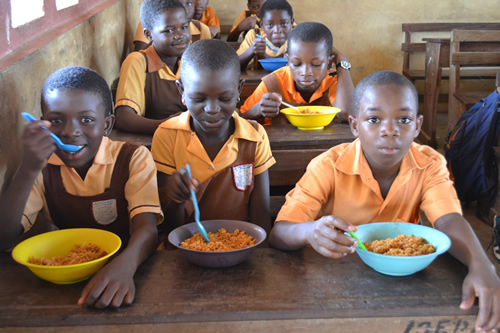CODE bemoans poor funding of basic education
 The Conference of Directors of Education (CODE) has bemoaned the poor funding of basic education in the country, saying this will negatively impact the outcome of the Free Senior High School (FSHS) programme.
The Conference of Directors of Education (CODE) has bemoaned the poor funding of basic education in the country, saying this will negatively impact the outcome of the Free Senior High School (FSHS) programme.
Mrs Margaret Frempong-Kore, National President of CODE, said this when she addressed the 25th annual conference of CODE in Tamale.
She said the poor funding of basic education had compelled school managers to use their own resources to cater for various administrative expenses.
Mrs Frempong-Kore said making education free at SHS level whiles basic education remained poorly funded was not the best, as the education foundation of pupils would be weak before they progressed to the SHS level.
The conference was to debate about the key issues that confronted and influenced quality pre-tertiary education as well as discuss issues related to policy directions.
Mrs Frempong-Kore said “CODE is of the view that funding at basic level is woefully inadequate taking into consideration the various school activities and the cost thereof. School activities like examinations, conducted three times a term, sports and culture, utility bills, and cost of sanitation have rocketed so high that the capitation grant cannot pay for these”.
She added that “Basic schools have become disproportionately disadvantaged in terms of resources allocation. The provision of textbooks, teaching and learning materials, library books and furniture are but a few of the resources that are inadequately supplied to the basic schools.”
She said “The SHS students are currently being fed but some primary and junior high school pupils still remain out of the feeding bracket.”
Mrs Frempong-Kore said “CODE believes that quality secondary education can only emerge from quality basic education. Therefore, the provision of free education at the SHS level will be meaningless if basic school education, which is the foundation, is weak”.
She expressed the need to strengthen education at the basic level to guarantee the high standard expected from the SHS level and beyond.
She also spoke about the School Feeding Programme expressing concern about the concentration of the programme in urban community schools instead of rural and poverty-stricken schools, calling on the government to involve CODE in the selection of beneficiary schools.
Mr Salifu Saeed, Northern Regional Minister who represented President Nana Akufo-Addo, reiterated that the FSHS programme had come to stay; assuring that government would make resources available to ensure its successful implementation.
Most Reverend Philip Naameh, Archbishop of Tamale Diocese of the Catholic Church, whose speech was read on his behalf, called for adequate infrastructure and discipline to ensure the success of the FSHS.
Most Rev Naameh also expressed the need to make the education system more functional, emphasizing technical and vocational education to address the country’s needs.
Sagnari Naa Yakubu Abdulai, Paramount Chief of Sagnarigu Traditional Area, who chaired the event, called on government to resource institutions and recruit more teachers to improve education outcome in the country.
Source: GNA
